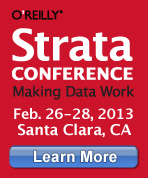EU’s data protection reforms could “instigate a trade war”
Ars Technica’s Cyrus Farivar took a look this week at the European Commission’s proposed reform to existing data protection laws. Farivar highlights some of the major changes the proposed reform would bring:
“The data protection reforms as proposed by the Commission would consolidate existing data protection rules, would require data breach notification within 24 hours, and would include a ‘right to be forgotten,’ allowing citizens to ‘delete their data if there are no legitimate grounds for retaining it.'”
The reform would facilitate data portability as well, Farivar notes, making it easier to transfer personal data from LinkedIn to Facebook, for instance, and could impose fines from 1% to 4% of global revenues for companies held in violation of the EU rules.
The proposed reform has ignited quite a controversy. Farivar looks at a draft response (PDF) to the proposed reform legislation published in January by Jan Philip Albrecht, a Green Party member of the European Parliament, that has “ruffled some feathers,” further expanding data protection rights beyond what the EU Commission proposed. Farivar also looks at the role members from the Pirate Party are playing in the debate, and the response from U.S. officials.
Farivar reports that U.S. Foreign Service economic officer John Rodgers noted in a speech in Berlin (Google Translate) “that a vast right to delete such personal information was not technically feasible and would pose a huge problem for all globally minded companies” and he “warned that the data protection reform as currently conceived could ‘instigate a trade war.'”
“[L]obbying pressure from American government representatives and their corporate allies is intensifying at an unprecedented level,” Farivar reports. Joe McNamee, executive director of European Digital Rights, told Farivar that “[n]othing, not even ACTA, caused the U.S. to lobby on this scale in Brussels.” You can read Farivar’s full report at Ars Technica.
 Strata Conference Santa Clara — Strata Conference Santa Clara, being held Feb. 26-28, 2013 in California, gives you the skills, tools, and technologies you need to make data work today. Learn more
Strata Conference Santa Clara — Strata Conference Santa Clara, being held Feb. 26-28, 2013 in California, gives you the skills, tools, and technologies you need to make data work today. Learn more
Investigating questions raised by the data revolution
New York Times Op-Ed columnist David Brooks put together a thoughtful piece this week on the philosophy of data, or “data-ism,” which he says is “the rising philosophy of the day.” He notes that our ability to gather increasingly large amounts of data seems to come with “certain cultural assumptions — that everything that can be measured should be measured; that data is a transparent and reliable lens that allows us to filter out emotionalism and ideology; that data will help us do remarkable things — like foretell the future.”
Brooks delves into areas he feels data addresses well — “exposing when our intuitive view of reality is wrong” and illuminating “patterns of behavior we haven’t yet noticed” — as a sort of launching point for a year-long investigation into questions raised by the data revolution, including: “In what situations should we rely on intuitive pattern recognition and in which situations should we ignore intuition and follow the data? What kinds of events are predictable using statistical analysis and what sorts of events are not?”
Nathan Yau highlighted Brooks’ piece on his Flowing Data blog and notes readers shouldn’t miss the comments on the article — “There’s actually quite a bit of anti-data talk,” he writes, which itself sparked a lively discussion.
Geeks and the fight for civil liberties
Hackers, coders and geeks “are building one of the most vibrant civil liberties movements we’ve ever seen,” argues Gabriella Coleman this week at MIT Technology Review. “It is a culture committed to freeing information, insisting on privacy, and fighting censorship, which in turn propels wide-ranging political activity,” she says.
Coleman highlights the success of Anonymous’ activities, particularly its involvement in the SOPA/PIPA and ACTA protests. She also points to work being done by more organized, established groups such as Demand Progress and the Pirate Party in Western Europe. And this is just the beginning — she writes:
“Clearly geeks and hackers are behind distinct modalities of political organizing, willing to deploy a diverse array of tactics. Demand Progress, along with the prominence of the Pirate Party in Western Europe, demonstrates the willingness of geeks and hackers to work within existing institutional channels. And all signs point to this type of traditional political activity becoming more common. But it will likely exist alongside the loosely organized acts of disobedience, defiance, and protests that have also become more frequent and visible in the last few years, in large part thanks to Anonymous.”
You can read Coleman’s piece at MIT Technology Review.
Tip us off
News tips and suggestions are always welcome, so please send them along.
Related:
